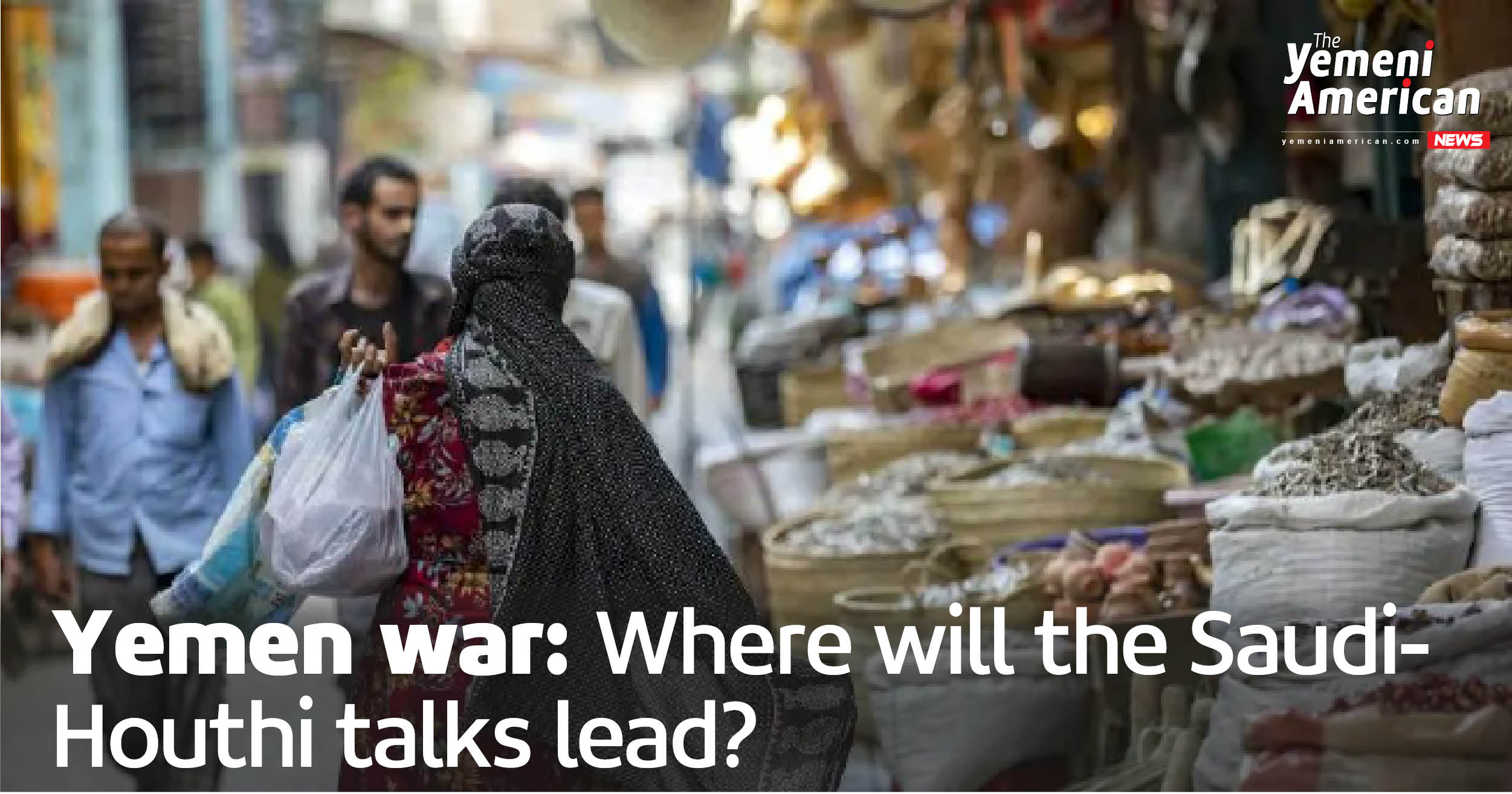By YAN
The protracted war in Yemen saw a major breakthrough last month as Saudi Arabia and the Houthi group held a rare – if not unprecedented – public negotiations in Sanaa.
A Saudi delegation, led by the kingdom’s ambassador to Yemen, Mohammed Al-Jaber visited the Yemeni capital after previous secret negotiations between the two sides in Muscat had paved the public and apparently amicable round of talks in April.
As the Saudis were negotiating with the Houthis in Muscat, the kingdom was engaged in talks with Iran in Oman and Iraq between 2021 and 2022, culminating in the Chinese-brokered March 10 agreement to reestablish diplomatic ties between the two countries.
While the Iranian-Saudi deals’ details are blurry, it was clear that the pact would influence the situation in Yemen.
Hurdles remain
The agreement between Tehran and Riyadh presented a “powerful boost” to the talks between Saudi Arabia and the Houthis, said a paper by the Mokha Center for Strategic Studies, a Yemeni think tank.
According to the center, the Houthis have agreed to extend the Yemeni truce for six months in an “expanded” ceasefire that would see the resumption of exports of Yemen’s oil and payments to public sector employees throughout the country, including areas under rebel control, as well as opening the Sanaa airport to new international destinations.
The Presidential Leadership Council, which is spearheading the Saudi-backed internationally recognized government, appears isolated from these talks and merely awaiting their results as it receives updates from the kingdom.
Nonetheless, the talks have the potential of breaking the deadlock and ending the conflict, which has turned into an enormous humanitarian disaster.
But many hurdles remain. The Saudi visit to Sanaa started out well as it was formalizing what had been agreed to in Muscat. The move appeared fruitful early on with the Houthis and the Yemeni government exchanging 800 prisoners days later.
Saudi Arabia’s Al-Jaber was received well in Sanaa, but he irked Houthi officials when he tweeted that his visit aimed to back ceasefire and prisoner exchange efforts and “discuss dialogue between the Yemeni components to reach a lasting political solution in Yemen.”
Houthi officials were quick to stress that Saudi Arabia is a side, not a mediator, in the conflict.
Still, according to sources, there was progress on the humanitarian file with focus on lifting the siege on the Hodeidah port, road openings and public sector wages.
The US role
As the talks were ongoing in Yemen, US national security adviser Jake Sullivan held a phone call with Saudi Arabia’s Crown Prince Mohammed bin Salman.
“Mr. Sullivan highlighted the remarkable progress in Yemen over the past year, during which fighting has nearly ceased under a UN-mediated truce,” the White House said.
“He welcomed Saudi Arabia’s extraordinary efforts to pursue a more comprehensive roadmap for ending the war and offered full US support for those efforts.”
Still, despite the regional rapprochement, Sullivan reverted to traditional US language on backing Riyadh against Tehran.
“Mr. Sullivan and Crown Prince Salman also discussed broader trends toward de-escalation in the region, while underscoring the need to maintain deterrence against threats from Iran and elsewhere,” the White House statement describing the call said.
“Mr. Sullivan reaffirmed President Biden’s unwavering commitment to ensure Iran can never acquire a nuclear weapon.”
The Houthis saw the call as an effort to derail the talks. And this month, Mahdi al-Mashat, chairman of the Houthi-backed Supreme Political Council, accused the US of engaging in efforts to thwart the push for peace, warning Washington against egging on escalation in Yemen.
In the final week of April, a member of the political bureau of Ansarallah (the Houthi movement) warned the Saudi government to pursue its own interests not those of the US, threatening that Saudi ports and airports as well as oil infrastructure would be targeted should the violence resume.
Observers said the recent escalation aimed to put pressure on the kingdom ahead of a new round of talks expected in May.
No military solution
The Saudi-Iranian agreement came after years of tensions that drove the entire Middle East to the verge of all-out wars. Now, it appears that regional politics are trending towards de-escalation, and Yemen is no exception.
The kingdom has reached a conclusion that after eight years of war, the solution to the Yemen conflict is political, not military. Riyadh is seeking a resolution to the crisis, so that it can turn to its domestic political and social agenda, including Prince Mohammed’s Vision 2030 to diversify and revamp the Saudi economy.
Transferring power from President Abd Rabbuh Mansour Hadi to the Presidential Leadership Council was a step in that direction – to pave the way for talks with the Houthis. It’s no coincidence that the UN-backed truce in Yemen last year, which continues in an unofficial capacity, coincided with Hadi’s resignation.
But many complex issues stand in the way between the status quo and a full resolution to the crisis.
A proposed Saudi plan includes a six-month truce followed by three months of talks and a transitional period of two years.
While a comprehensive political solution seems ambitious, its potential failure does not mean continuation of the war, and signs appear to be pointing to a willingness to end the violence, which is a priority for the people of Yemen.













